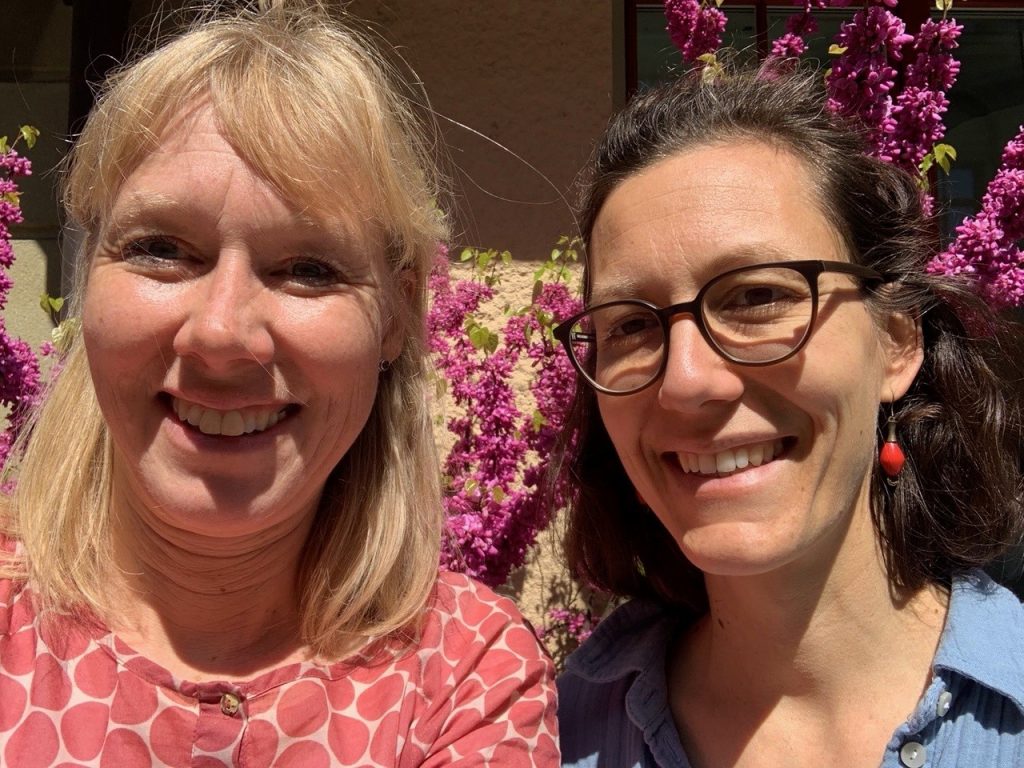Studying as a refugee – a long and hard road

The University of Bern offers a program for refugees with an academic background to guide them towards admission as fully enrolled students. Ann-Seline Fankhauser, project leader of Compass-UniBE, and her colleague Solvej Sörensen explain why this programme complements the open lecture hall and what lessons were learned from the preparation year for Ukrainian school leavers.
Access to university education for refugees is fraught with challenges, such as language, previous qualifications and finances. Compass UniBE is helping refugees to overcome such hurdles and pave their way to studying at the University of Bern.
Since 2016, refugees could attend lectures as part of a mentoring programme by the students’ union at the University of Bern (SUB). Called the open lecture hall, it received approximately 70 applications for 25 slots in the autumn semester of 2022.
While the open lecture hall gives people a glimpse into university life and structured activities, it does not prepare for university admission. For those candidates who want to enrol as degree-seeking students, Compass UniBE offers intensive language courses, methodical and subject-specific training in order to enable them to become successful university students.
“Compass-UniBE intends to remove hurdles that were there because the participants had to flee their country.”
Ann-Seline Fankhauser
Ann-Seline Fankhauser, project leader of Compass-UniBE, and her colleague Solvej Sörensen advise potential participants to make sure the programme is right for the candidates. For the autumn semester of 2023, Compass-UniBE received 73 applications for 20 slots. Ann-Seline and Solvej work closely with the social agencies of the Canton of Bern to make sure that the selected participants have all the support they need for their studies.
The war in Ukraine changed everything
Many people who fled Ukraine and came to Switzerland seeking safety were school leavers and students. The latter were admitted as exchange students or if they fulfilled the requirements enrolled as regular students. The former were left in limbo because they had reached the age where they would enrol at a Ukrainian university, but their qualifications did not permit them to enrol at a Swiss university.
The University of Bern in collaboration with the Canton of Bern set up a preparation year, consisting of intensive language courses, subject-specific introductions and classes on methods and studying in Switzerland. Especially the language requirements meant the participants had to study hard to reach the required level of C1 in German. For those candidates who will pass the preparation year, it will replace the enrolment conditions and they can go on to study at the University of Bern.
The preparation year for Ukrainian school leavers was only run once and will not be repeated. The hope was always that an end of the war would make repeating it for a second year unnecessary. One of its legacies will be the lessons learned in setting up an introduction year to guide school leavers from different cultural and academic backgrounds to enrolment at the University of Bern.
Broadening the appeal
“In terms of its idea, Compass is the same as the preparation year for Ukrainian School leavers,” explains Ann-Seline Fankhauser. “It prepares highly qualified refugees for university studies. It intends to remove hurdles that were there because the participants had to flee their country,” continues Fankhauser.
In contrast to the preparation year, anyone from anywhere who fits the criteria can apply to Compass-UniBE, including of course people who had to flee Ukraine. Initially, Compass-UniBE runs as a two-year trial. It offers intensive language courses, subject-specific introductory courses, English and Mathematics classes.
About Ann-Seline Fankhauser and Solvej Sörensen
Before joining the University of Bern, Ann-Seline co-led a project at the Swiss Students’ Union advocating for more access to university education for refugees. She knows what other universities do in this field and brings experience in advising candidates and working with cantonal as well as federal authorities. Ann-Seline holds a Master of Arts in Legal Studies from the University of Fribourg and a Master of Arts in Social Sciences, Migration and Citizenship studies from the University of Neuchâtel.
Solvej Sörensen has seven years’ experience advising students at the admissions office at the University of Bern. She holds a Master of Arts in Ethnography and Socialanthropology from Aarhus University, Denmark.
Find out more
Compass UniBE – University preparation for refugee students
Fund for refugee students
Many students who fled their home struggle to afford studying at the University of Bern. The University of Bern has set up a fund to support refugee students with costs associated with attending classes, such as laptops, public transport, registration and tuition fees. Please donate to help remove financial hurdles for students who fled from war and contribute to their access to university education. If you have any questions about the use of the fund, please get in touch with Ann-Seline Fankhauser.
Text: Caspar Bienek
Image: Ann-Seline Fankhauser